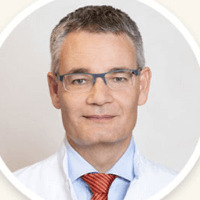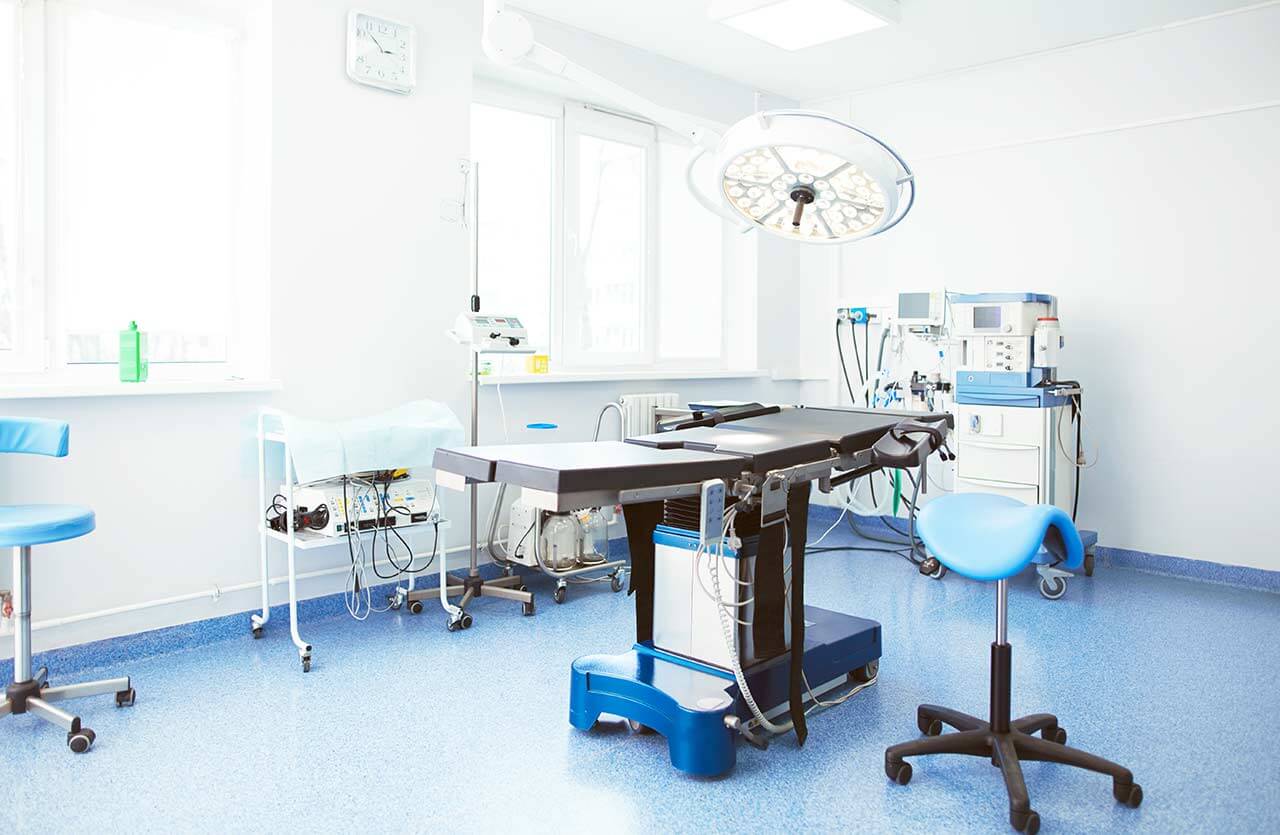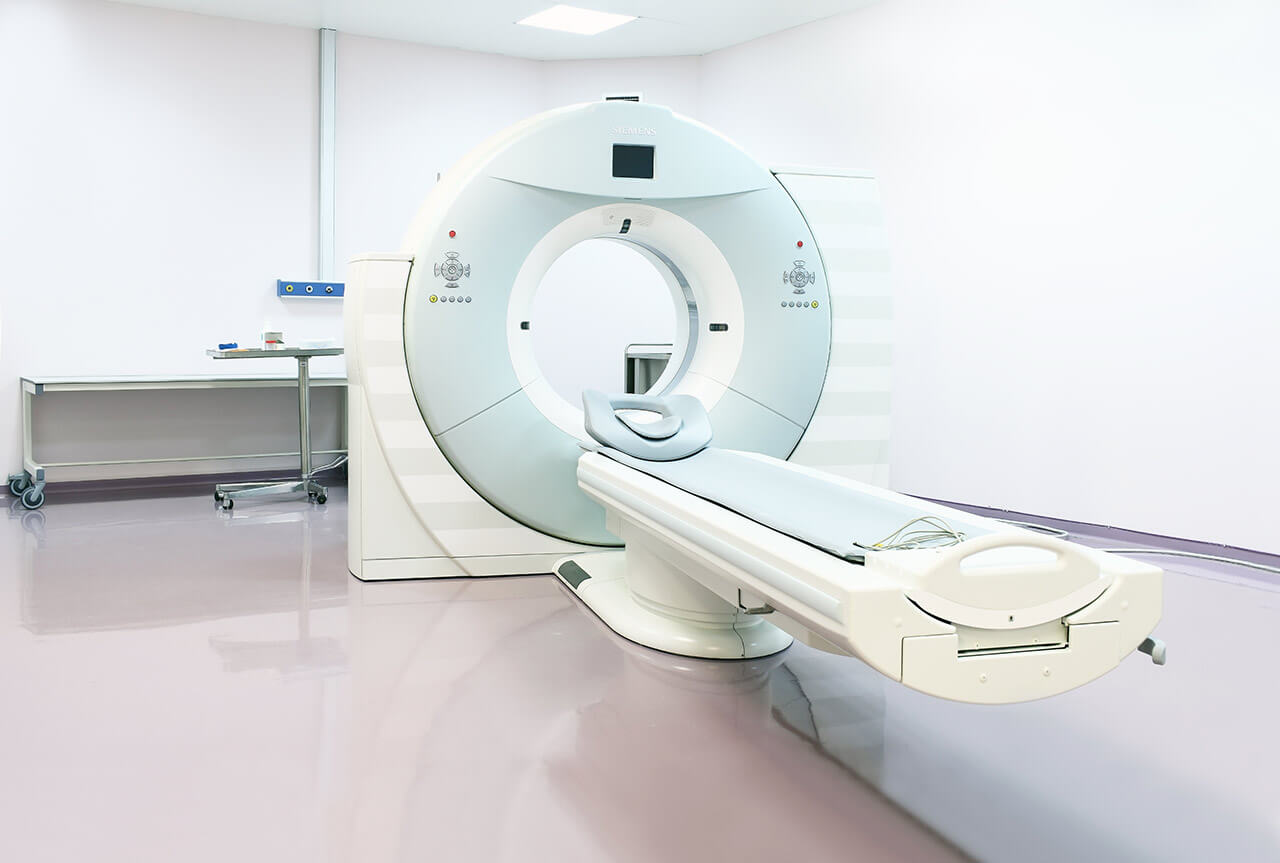
The program includes:
- Initial presentation in the clinic
- clinical history taking
- review of medical records
- physical examination
- urological examination
- laboratory tests:
- complete blood count
- general urine analysis
- biochemical analysis of blood
- inflammation indicators (CRP, ESR)
- indicators blood coagulation
- tumor marker
- testicular ultrasound
- MRI of the abdomen and pelvis
- preoperative care
- radical orchidectomy
- histologically and immunohistochemically
examination of the remote tissues - symptomatic treatment
- control examinations
- the cost of essential medicines and materials
- nursing services
- full hospital accommodation
- explanation of future recommendations
Required documents
- Medical records
- MRI/CT scan (not older than 3 months)
- Biopsy results (if available)
Service
You may also book:
 BookingHealth Price from:
BookingHealth Price from:
About the department
The Department of Urology at the Hirslanden Clinic Aarau offers the full range of medical services in the area of its specialization. The department’s competence covers the treatment of diseases of the prostate gland, kidneys, adrenal glands, bladder, ureters, urethra, penis and testicles. The department's urologists mostly have to deal with such pathologies as prostate cancer, bladder cancer, urinary incontinence, erectile dysfunction and kidney stone disease. The therapeutic offer is complemented by prostate preventive examinations, as well as a vasectomy procedure, if the man does not plan to have children in the future. The department is headed by Dr. med. Martin Christian Schumacher.
Long clinical experience of the department's medical team, as well as the use of state-of-the-art medical equipment, ensure top-class treatment results. These innovations include minimally invasive surgery using the da Vinci surgical system, brachytherapy, etc. Robot-assisted surgery is actively used in the treatment of prostate cancer, bladder cancer, kidney cancer, ureteral tumors, as well as for reconstructive interventions. Such operations have several advantages: minimal blood loss, reduced risk of complications, less pronounced pain syndrome, speedy recovery and return to normal everyday life. The da Vinci surgical system has been used in the department since February 2011, so the specialists working with this device have extensive experience and excellent skills, which ensure perfect treatment results. The Chief Physician of the department, Dr. med. Martin Christian Schumacher, performed more than 1,500 interventions using this surgical system.
The department's specialists practice an interdisciplinary approach to treatment, and therefore they cooperate closely with oncologists, radiation therapists and other doctors. Such approach plays a particularly important role in the treatment of urological cancers – the experts discuss each clinical case at the tumor boards and jointly develop the optimal treatment regimen for a particular patient. Upon the completion of the treatment course, the patients undergo an outpatient rehabilitation program, which allows them to completely recover and consolidate the achieved result.
The department's range of medical services includes:
- Diagnostics and treatment of prostate cancer
- Surgery using da Vinci surgical system (total removal of the prostate gland with seminal vesicles and lymph nodes in the pelvis)
- Radiation therapy (often in combination with androgen blockade)
- Brachytherapy (radioactive "seeds" are placed directly into the tumor and slowly release radiation energy for several months in order to destroy cancer cells)
- Diagnostics and treatment of testicular cancer
- Surgical treatment
- Chemotherapy
- Radiation therapy
- Diagnostics and treatment of penile cancer
- Surgical removal of the tumor (laser removal can be performed for small tumors)
- Chemotherapy
- Radiation therapy
- Diagnostics and treatment of benign prostatic hyperplasia
- Drug treatment
- RezumTM therapy (minimally invasive water vapor therapy)
- Diagnostics and treatment of bladder cancer
- Surgical treatment
- Transurethral resection of the bladder tumor
- Radical cystectomy (bladder removal) with the formation of an artificial bladder (for example, from the ileal tissues)
- Chemotherapy
- Immunotherapy (in the presence of metastases)
- Local irradiation of single metastases
- Surgical treatment
- Diagnostics and treatment of kidney cancer
- Surgical treatment
- Chemotherapy
- Radiation therapy
- Diagnostics and treatment of urinary incontinence
- Surgical treatment
- Conservative treatment
- Diagnostics and treatment of erectile dysfunction
- Diagnostics and treatment of kidney stones
- Endoscopic interventions
- Ureterorenoscopy
- Percutaneous nephrolithotripsy
- Surgical treatment using da Vinci robot (for large stones only)
- Drug therapy
- Extracorporeal shock wave therapy
- Endoscopic interventions
- Other medical services
Curriculum vitae
Clinical Interests
- Robot-assisted surgery.
- Cancer surgery (prostate, bladder and kidney cancers).
Professional Career
- Since August 2018 Founder of the Erectile Dysfunction Center.
- Since 2014 President of the Medical Board of the Hirslanden Clinic Aarau.
- Since 2014 Work in the Department of Urology at the Hirslanden Clinic Aarau.
- 2011 Medical Specialist in Urology (part-time), Karolinska University Hospital, Stockholm, Sweden.
- 2008 - 2011 Head of the Group on Bladder Cancer (cystectomy), Karolinska University Hospital, Stockholm, Sweden.
- 2006 - 2008 Medical Specialist in Urology, Karolinska University Hospital, Stockholm, Sweden.
- 2001 - 2006 Assistant Physician and then Senior Physician, Department of Urology, University Hospital Bern.
- 2000 - 2001 Assistant Physician, Department of Nephrology and Hypertensiology, University Hospital Bern.
- 1999 - 2000 Research activities in the Department of Nephrology and Hypertensiology, Department of Urology at the University Hospital Bern.
- 1998 - 1999 Assistant Physician, Department of Urology, Freiburger Spital, Switzerland.
- 1997 - 1998 Assistant Physician, Department of Orthopedics, Freiburger Spital, Switzerland.
- 1996 - 1997 Assistant Physician, Department of Surgery, Freiburger Spital, Switzerland.
Higher Education and Postgraduate Training
- 2011 Board certification in Surgical Urology.
- 2006 Diploma of European Urological Examination (EBU), Part II, Fellow of the European Board of Urology (FEBU).
- 2005 Board certification in Urology, Swiss Medical Association (FMH).
- 2003 Diploma of European Examination in Urology (EBU), Part I.
- 2002 Doctoral thesis. Subject: "Dependence of blood pressure on the ionic composition of the blood and a decrease in the activity of 11-beta-hydroxysteroid dehydrogenase type 2 after kidney transplantation".
- 2001 International Diploma in Mountain Medicine.
- 1999 Surgical Examination, Association of Swiss Surgical Societies.
Memberships in Professional Societies
- Swiss Medical Association (FMH).
- Swiss Society of Mountain Medicine (SSGM).
- Swiss Society of Urology (SGU).
- Swiss Society of Ultrasound Diagnostics (SUD).
- European Association of Urology (EAU).
- International Neuro-Urology Society (INUS).
Photo of the doctor: (c) Hirslanden AG
About hospital
The Hirslanden Clinic Aarau enjoys the status of one of the largest and most successful private medical facilities in Bern and Zurich. The clinic is part of the Hirslanden Network known in Europe, which is a provider of first-class medical services in Switzerland.
The main areas of specialization of the clinic in Aarau include cardiology, cardiac surgery, abdominal surgery, urology, oncology, neurosurgery, spinal surgery and orthopedics. The Department of Obstetrics annually delivers more than 700 babies. The high professionalism of the clinic’s medical staff, as well as the excellent technical base, make it possible to successfully cure not only common pathologies, but also very complex clinical cases.
All efforts of doctors and nursing staff of the clinic are focused on meeting the needs of patients and best possible restoration of their health. The work with patients is based on an individual approach to each clinical situation. The clinic has 155 beds for inpatient treatment. The surgical treatment is provided in 7 operating rooms with all the necessary surgical instruments, computer monitoring systems, navigation devices, robot-assisted systems for sparing laparoscopic operations.
Since 2010, the clinic introduced a unified quality management system, which includes all clinics in the Hirslanden Network. The clinical performance indicators and patient reviews are provided in the annual reports available to all those who want to see them. At the moment, the clinic rating is 8.9 out of 10 possible points – based on patient reviews. The clinic is also the first and only health facility in the canton of Aargau, which medical services were certified in accordance with the new ISO 2016 standards.
Photo: (с) depositphotos
Accommodation in hospital
Patients rooms
The patients of the Hirslanden Clinic Aarau live in cozy rooms equipped with everything necessary for a comfortable stay in the hospital. Each patient room has an ensuite bathroom with shower and toilet. The standard patient room includes an automatically adjustable bed, a bedside table, a wardrobe with lockers for storing personal belongings, a hairdryer, a table and chairs for receiving visitors, a TV and a radio. The patient rooms also have Wi-Fi access. If desired, the patients can live in enhanced-comfort patient rooms, which are additionally equipped with a safe, a refrigerator and upholstered furniture.
Meals and Menus
The patient and the accompanying person are offered a daily choice of three menus. If you are on a specific diet for any reason, you will be offered an individual menu. Please inform the medical staff about your dietary preferences prior to the treatment.
Further details
Standard rooms include:
Religion
The religious services can be provided upon request.
Accompanying person
During the inpatient program, an accompanying person may stay with the patient in the patient room or at a hotel. Our managers will help you choose the most suitable option.
Hospital accommodation
During the outpatient program, you can live in a hotel at the clinic.
Hotel
During the outpatient program, you can live in a hotel of your choice. Managers will help you choose the most suitable options.



